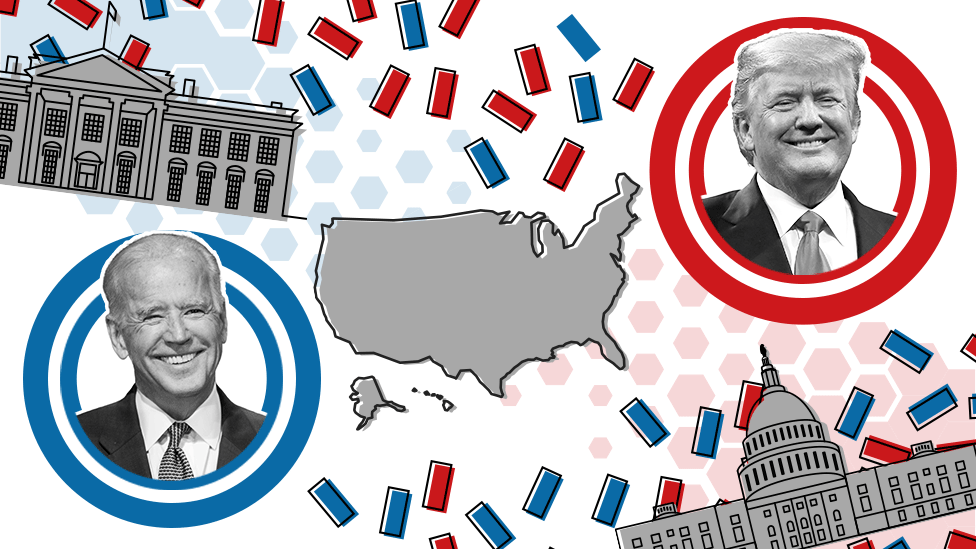
Americans are in suspense as to the final results of the 2020 U.S. election.
Even without a clear winner, the current U.S. election exposes many angles that reflect the realities of the electoral system in the powerful northern nation. Although most polls showed Democratic candidate Joe Biden to be favored over Republican Donald Trump, no one dared to guarantee a resounding success for the liberal party.
The current leader made it clear before Tuesday, Nov. 3, that he was unwilling to leave the White House; he has reaffirmed this in recent statements, upon seeing that his opponent is overtaking him in key states in a race to decide the destiny of the presidency for the next four years.
Faced with an atypical election due to the COVID-19 pandemic — the U.S. is the country with the highest number of confirmed cases and deaths — the number of early votes and mail-in ballots cast prior to election day rose. In fact, more than 100 million voters exercised their right. However, abstention was again as much a focal point as the candidates.
With several chapters to go until “The End,” this 2020 election soap opera, with written scripts dating back centuries, exhibits a characteristic, expanded by the current president, that impacts Americans as a nation. The attitude of the citizens, which the real-estate magnate’s parrots now exacerbate, divides Americans in a society marked this year by various protests confronting problems such as racial discrimination, gender diversity, the disastrous governmental attitude toward managing the pandemic and the rejection and criminalization of Latinos. This last issue, emphasized by the plan to build the border wall, cost Trump at the Arizona polls, which was expected to be a sure Republican victory.
Specifically, three issues concerned Latino voters, a population with high rates of neglect in terms of health and finances due to the COVID-19 pandemic. Those concerns are the economy, health care and management of COVID-19.
Beyond possible litigation from Republicans or another process to delay the final result, if Biden, 77, becomes the 46th president, he will face a divided country and a Dantean job that goes beyond political parties and well-managed government.
Although major news outlets focused on the election this week, the crisis resulting from the pandemic is lurking. Surely, not many Americans knew that, on Nov. 5, the country hit another record for cases with 121,888 new positive cases, approaching 10 million total cases, while the total of U.S. fatalities already exceeds 235,000.
Also, if the electoral battle provided extra headaches for Trump before, during and after the election, there are other icebergs approaching. Accusations of tax fraud join with a new complaint by Rep. Bill Pascrell, D-N.J. who has confirmed that the U.S. Office of Special Counsel plans to open an investigation of Trump because his campaign staff used the White House as a command center and banquet hall. This would violate U.S. laws, including the Hatch Act, which limits the activity of government employees, prohibiting them from holding the majority of elected public offices, participating in political campaigns, raising funds for political candidates or considering political affiliation when hiring employees.
This is the panorama on display in a week marked with uncertainty, tensions and protests from various sectors of U.S. society in favor of one candidate or the other. For the moment, we must wait for the end of this thriller, which, in pure Hollywood style, captures the attention of many but satisfies few.

Leave a Reply
You must be logged in to post a comment.